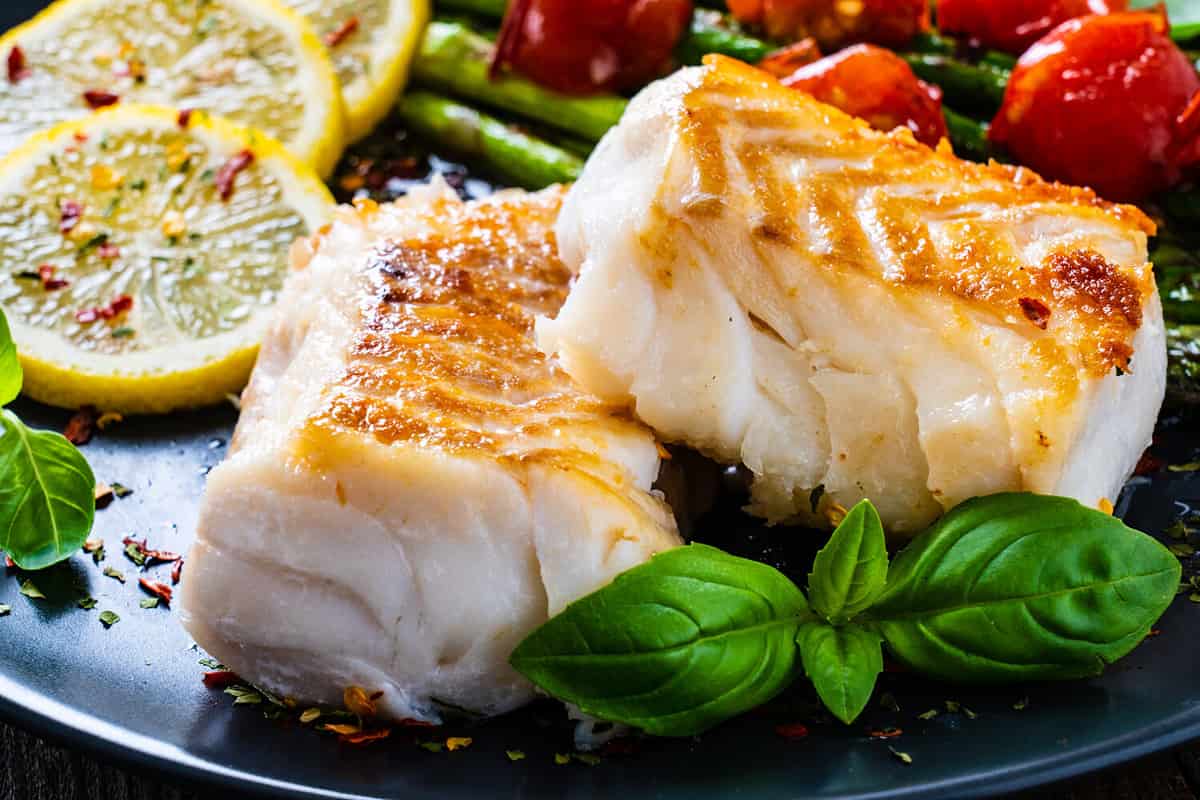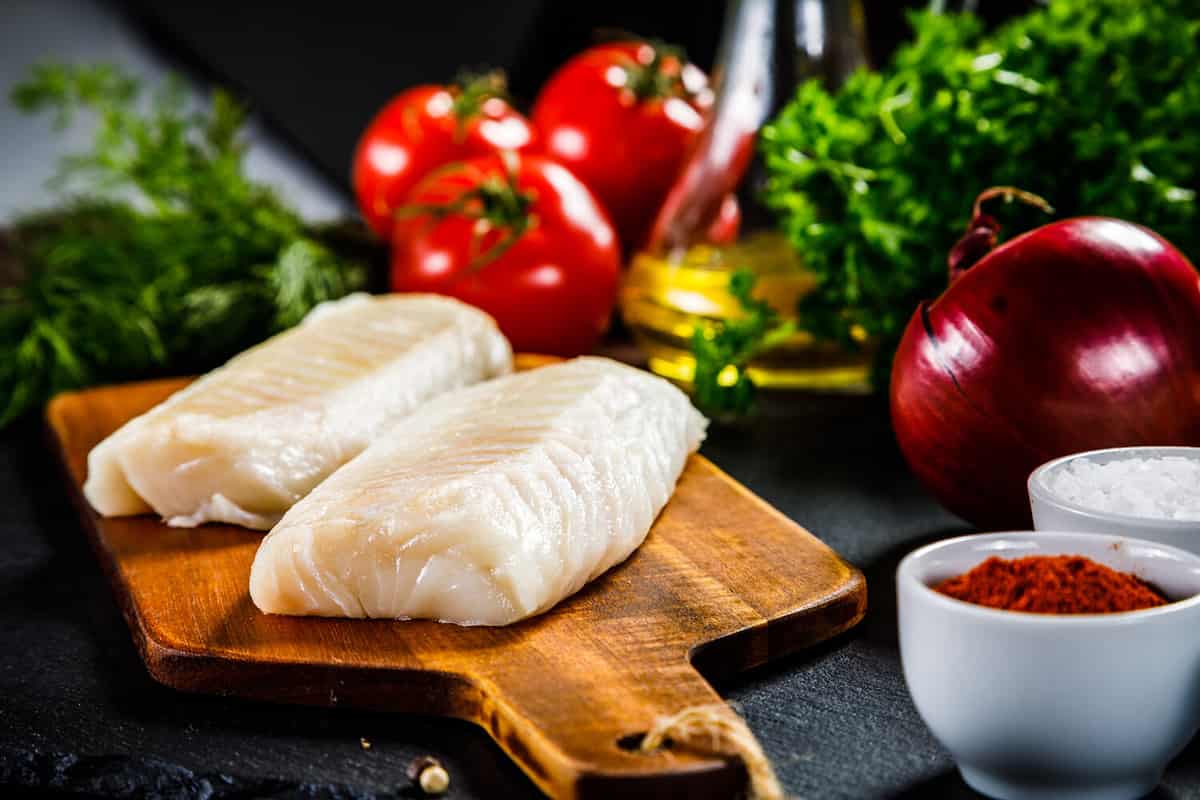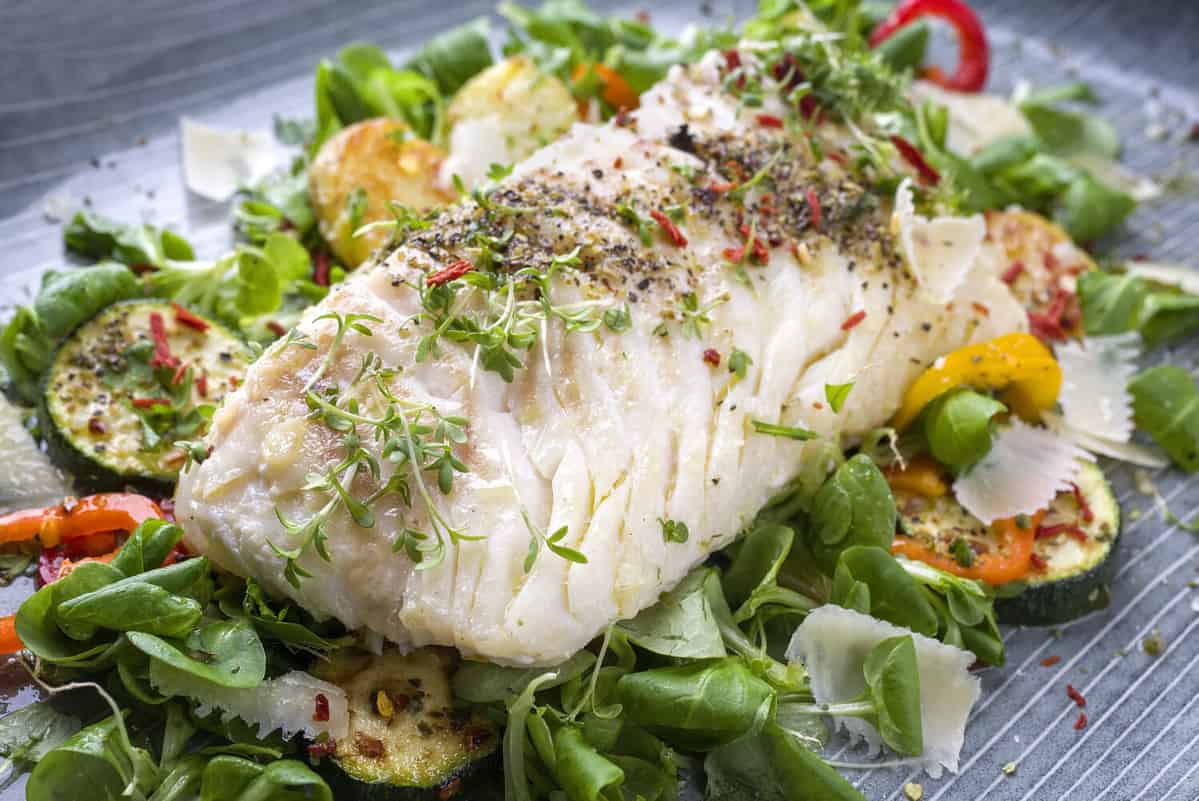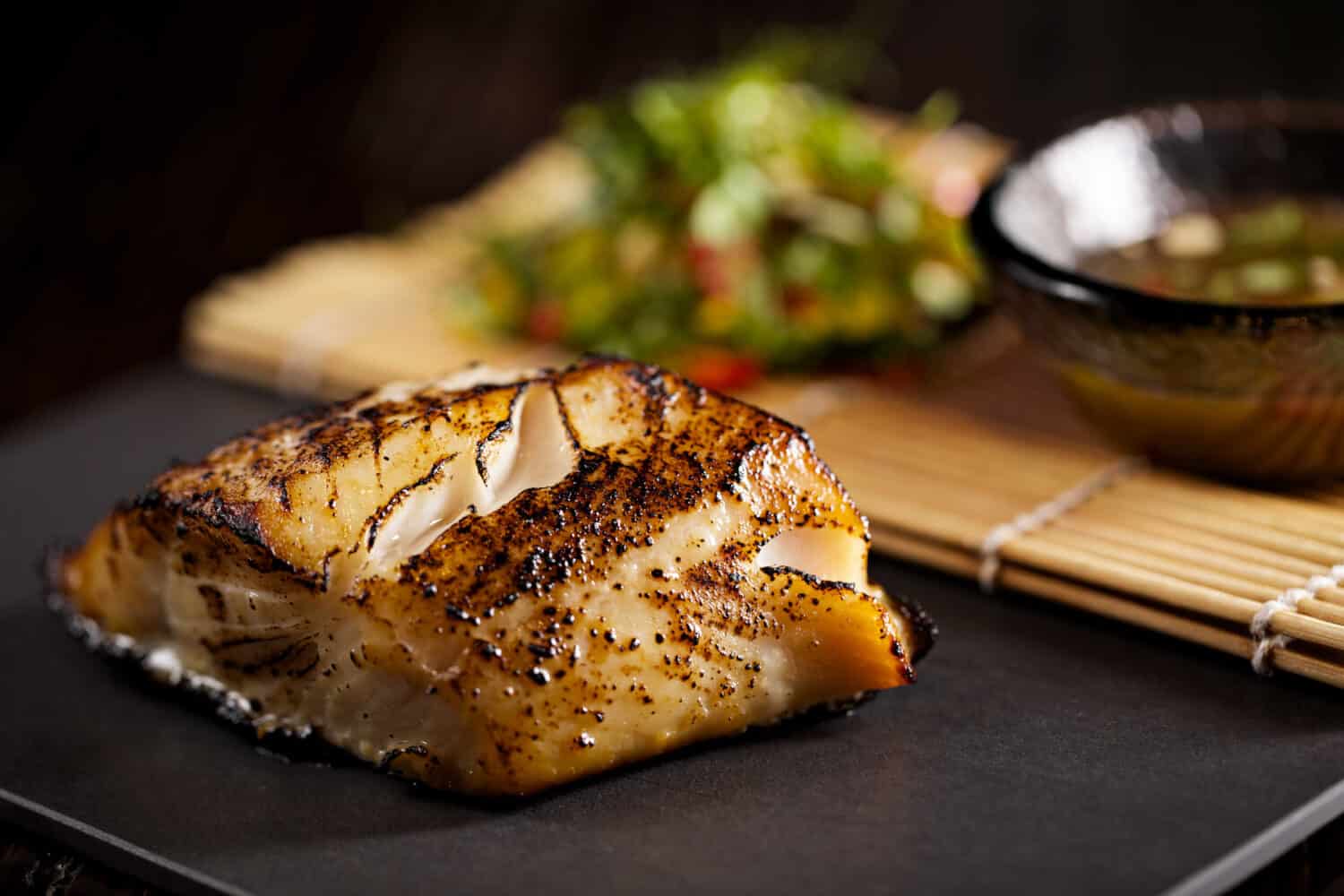Cod is a white fish that offers mild flavor and a flaky texture. Cod is a healthy fish for you as it is low in fat, calories, and carbohydrates as well as being high in protein. Let's take a deeper look at what cod is, its nutritional value, how it can benefit your health and the risks that come with its consumption.

©Jacek Chabraszewski/Shutterstock.com
What Is Cod?
Cod is a white fish that is usually well-liked because of its mild flavor. The Gadus group of fish are all considered cod fish and can be found in the Pacific, the Atlantic, and Greenland. Sometimes, the term cod can be used for other types of fish, which can make it difficult to know the exact type of fish you're getting. If you want to ensure you're getting cod, make sure to check the food and ingredient labels.
Nutritional Value
Cod has a high protein content and contains vitamins and minerals that our bodies need. This nutritional value pertains specifically to cod found in the Pacific and Atlantic oceans. A three-ounce serving of cooked cod has around 85 calories, 20 grams of protein, and less than a gram of fat. It is also a great source of vitamin B12, having 30% of the daily need. It also contains niacin, vitamin B6, selenium, and phosphorus.
Health Benefits
Vitamin B, or niacin, is necessary to help our body perform important functions. It promotes healthy skin, hair, eyes, and liver and allows the nervous system to function properly. Additionally, it assists in the production of important hormones. Phosphorus is important for the health of teeth and bones. Selenium helps to create and protect DNA, production of thyroid hormones, as well as fight off infections. Cod is a great source of selenium as it provides around 40% of the daily value needed.
Consuming fish is proven to lower the risk of heart disease as well as support brain function. Fish has omega-3 fatty acids which lower the risk of death in patients with heart failure. Omega-3s also contribute to brain health and gray matter loss. In this study, it showed that participants who consumed fish showed larger volumes of gray matter. This means it could be an integral part of early brain disease prevention.
Cod can be a great protein option to help with losing weight. It is nutrient-dense, low in calories, and offers just under half the daily needed protein. 45-55 grams of protein is needed daily and one serving of cod can offer around 20 grams of protein. Consuming protein helps to make you feel full therefore reducing your need to eat. This, in turn, can help you eat less and reduce your daily caloric intake.

©Jacek Chabraszewski/Shutterstock.com
Downsides
Although the nutrients from cod can offer some great benefits, there are also some downsides and potential risks.
Consuming fish can put you at risk for mercury exposure. Mercury is a toxic heavy metal often found in fish due to contaminated waters. If consuming too much mercury, there is a risk of neurological impacts like deficits in vision, coordination, sensation, and hearing. It's important to avoid mercury consumption when pregnant, as mercury exposure in utero can cause low birth weight, cerebral palsy, and other debilitating diseases. Cod specifically is low in mercury, which can actually make this a benefit unless you are consuming high amounts of cod, in which case you should keep this in mind.
Although cod does offer a decent amount of omega-3, it does have a lower content than some other fish offer. Fish with a high content of omega-3 include salmon, herring, and mackerel. If omega-3 consumption is a priority for you, you should consider some of the other fish options.
When consuming fish, parasite contamination is always a risk if consuming it raw without it being frozen prior. Many fish harbor parasites but as long as it's prepared correctly, contamination can be avoided. If parasites are consumed, they can cause illness with symptoms like abdominal pain, diarrhea, and muscle pain.
How To Cook Cod
To ensure your meal with cod stays healthy so you can receive all the benefits, the best way to prepare it is by baking, grilling, or broiling it. Cod is best cooked in moist heat so that it doesn't dry out. Seasoning and wrapping it in aluminum foil is great for keeping it moist. Great ingredients to season cod with include olive oil, lemon, salt, pepper, and garlic.

©hlphoto/Shutterstock.com
Summary
Cod is a white and flaky fish with a mild flavor. It is a lean fish that is low in calories, carbohydrates, and fat but high in protein. The nutrients it offers help the human body carry out integral functions to keep us healthy and can also assist in weight loss. Consuming cod brings the risks that come with consuming fish, like mercury exposure and parasites if not prepared correctly. But overall, it's a great option to add to your diet.
The image featured at the top of this post is ©Neil Walton/Shutterstock.com.
